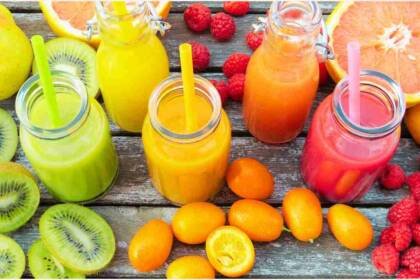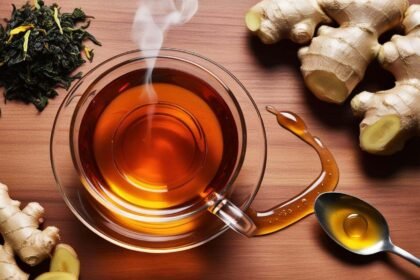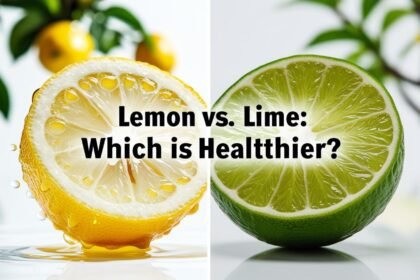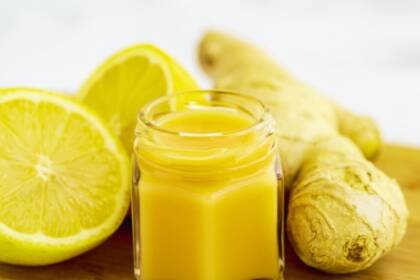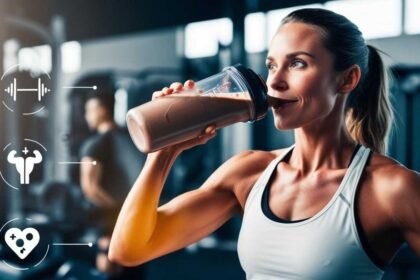Ageing is a natural part of life—but who says we can’t age gracefully? While there’s no magic potion to stop time, there are some powerful, natural ways to slow down the signs of ageing.
Among them, two fermented drinks stand out: kombucha and kefir. Backed by both traditional use and modern science, these drinks not only taste great but also deliver serious anti-ageing benefits.
Let’s dive into what makes kombucha and kefir special, how they work, and why they might just become your favorite additions to your wellness routine.
What Is Kombucha?
Kombucha is a fermented beverage made by combining tea (typically black or green), sugar, and a SCOBY (Symbiotic Culture Of Bacteria and Yeast). It ferments for 7–10 days, producing a tangy, slightly fizzy drink.
This ancient elixir originated in Northeast China around 220 B.C. and has grown in popularity due to its probiotic content and refreshing taste.
Kombucha’s Anti-Ageing Benefits
1. Packed with Antioxidants
Kombucha is rich in polyphenols and antioxidants, which combat oxidative stress by neutralizing harmful free radicals.
Free radicals are unstable molecules that damage skin cells, leading to wrinkles, dullness, and premature ageing.
According to a study, kombucha made from green tea shows even higher antioxidant activity, helping preserve collagen and elastin—two proteins that keep your skin firm and youthful.
2. Improves Skin Elasticity
Thanks to its tea base, kombucha contains polyphenols like catechins and theaflavins, which are known to improve skin elasticity.
A study in The Journal of Nutrition (2011) found that regular consumption of green tea polyphenols led to measurable improvement in skin quality and reduced wrinkle formation.
3. Detoxifies the Liver
During fermentation, kombucha produces glucuronic acid, a compound that helps the liver detoxify.
Detoxifying the liver helps remove harmful toxins from the body, many of which contribute to ageing and fatigue.
When your liver functions better, your skin often shows it—with fewer breakouts, more glow, and improved tone.
4. Supports Gut Health
Kombucha contains probiotics, the friendly bacteria that keep your gut healthy. A well-balanced gut microbiome is linked to improved skin health, mood stability, and energy levels.
Emerging research confirms the connection between gut health and ageing, suggesting that supporting gut bacteria may help delay age-related issues.
Best Time to Drink Kombucha:
Enjoy it cold as a mid-day or evening refreshment. Avoid drinking it on an empty stomach if you’re sensitive to acidity.
What Is Kefir?
Kefir is another fermented beverage made using kefir grains, which contain a mix of beneficial bacteria and yeast.
You can make kefir with milk or water, making it suitable for both dairy lovers and those on a plant-based diet.
Unlike yogurt, kefir has a thinner consistency and contains a broader range of probiotics—up to 30 different strains!
Kefir’s Anti-Ageing Benefit
1. Boosts Collagen Production
Kefir is rich in biotin (vitamin B7) and protein, which are essential for healthy skin, hair, and nails.
Biotin plays a critical role in collagen synthesis, helping reduce fine lines and maintain skin elasticity.
According to research, a diet rich in protein and vitamins like biotin helps support the skin’s structure and reduces signs of ageing.
2. Reduces Inflammation
Inflammation is a major driver of ageing. Chronic inflammation leads to puffiness, skin irritation, and even long-term damage to your internal organs.
The probiotics in kefir help balance immune responses, thereby reducing inflammation throughout the body.
According to a study review, regular kefir consumption significantly reduced markers of inflammation in participants with metabolic disorders.
3. Strengthens the Immune System
As we age, our immune function weakens. The rich probiotic profile in kefir helps replenish beneficial bacteria in the gut, which is closely tied to immune strength. A healthy immune system helps ward off illness and supports overall vitality.
4. Promotes Bone Health
Kefir is rich in calcium, magnesium, and phosphorus—all vital for maintaining bone density. With age, the risk of osteoporosis increases, especially in women post-menopause.
According to study, fermented dairy products like kefir significantly increased bone mineral density in older adults over six months.
Best Time to Drink Kefir:
Enjoy kefir in the morning or use it as a base for your smoothies. It’s especially great on an empty stomach to help populate your gut with healthy microbes first thing in the day.
Kombucha vs. Kefir: Which One Should You Choose?
Both drinks are great, but they offer slightly different benefits:
| Benefit | Kombucha | Kefir |
|---|---|---|
| Probiotic Count | Moderate | Very High |
| Skin Benefits | Antioxidants, elasticity boost | Collagen support, anti-inflammatory |
| Gut Health | Improves digestion | Stronger effect due to more strains |
| Bone Health | Minimal | Rich in calcium & minerals |
| Detoxification | Yes (glucuronic acid) | Indirect (supports liver through gut) |
| Best Time to Drink | Mid-day or evening | Morning or smoothie base |
Ideally, you can rotate both into your diet to get the full spectrum of benefits.
Final Thoughts: Sip Your Way to Youth
While no single food or drink will turn back the clock entirely, kombucha and kefir are two of the most promising natural options to include in an anti-ageing lifestyle.
Their combination of probiotics, antioxidants, collagen-boosting nutrients, and detox support can improve not just how you look, but also how you feel.
As always, moderation is key. Start with small servings (especially if you’re new to fermented foods) and watch how your body responds.
So the next time you feel like pouring yourself a sugary soda or artificial juice, consider swapping it for a glass of kombucha or kefir instead. Your skin, bones, gut—and future self—will thank you.






